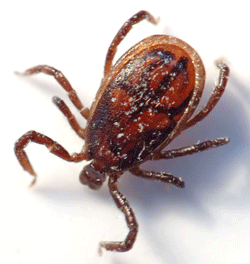British Conservative politician Jeremy Hunt said last week that Asia was an exemplary model for elderly care. An op-ed in liberal paper The Guardian took issue with Hunt’s claims, pointing out that across Asia many of the elderly live “in a state barely better than completely neglected.”
A story that was published in Guangzhou Daily on Friday also suggests that Hunt’s admiration of Asian elderly care is misplaced.
A tearful Yang Lishi, 71, told the paper that she came down from Henan to visit her son on the National Day holiday. He immediately took her to the nearest homeless shelter and told her they would buy her a ticket home.
Such occurrences involving the elderly parents of migrant workers have been on the increase over the past two years, with 2-3 such cases every week. A representative of a local homeless shelter told the paper that over 60% of these parents aged over 70 suffered severely from illnesses such as dementia.
The shelter bought her train ticket home, but she did not get to speak to her son or see her 4 year-old grandson again as his phone was switched off.
China has tried to combat this societal problem by passing a law that punishes adults who fail to visit their elderly parents.
Guangzhou’s biggest old folks home yet was opened in Tianhe District in August but it is unlikely to be the parents of migrant workers who enjoy the service.
There are concerns in Guangzhou over a particular insect that doctors believe contributed to the deaths of four senior citizens, according to Yangcheng Evening News.
 Scrub typhus, also known as Japanese river fever or flood fever, is an acute febrile typhus disease. There are cases every year, particularly in summer as the muggy weather is conducive to insects breeding. According to the report, the four people who died have something in common: they had all been to Xiaogang Park(晓港公园)and apparently ignored the warning signs. The first symptom of having been bitten by the bug is a fever, which patients usually mistake for a cold and delay seeking medical help. In addition, people don’t always pay attention to bites on the waist, armpit, abdomen or thigh.
Scrub typhus, also known as Japanese river fever or flood fever, is an acute febrile typhus disease. There are cases every year, particularly in summer as the muggy weather is conducive to insects breeding. According to the report, the four people who died have something in common: they had all been to Xiaogang Park(晓港公园)and apparently ignored the warning signs. The first symptom of having been bitten by the bug is a fever, which patients usually mistake for a cold and delay seeking medical help. In addition, people don’t always pay attention to bites on the waist, armpit, abdomen or thigh.
However, doctors say that patients should not be too worried as the illness is curable if identified. The signs can be very subtle so if you have any symptoms such as high fever, dry and flaking skin or scabs, you may need to see a doctor immediately. Doctors warn that following precautions should be taken when in parks or other grassy areas:
As always, maintain a high level of personal hygiene. But maybe the best advice? Avoid going to Xiaogang Park, at least for now.
 Earlier this month, police received a tip-off that sex was being solicited along Taijiangyang Zhong Road in Fuzhou, Fujian, and that most of the prostitutes were in their 50s and 60s. Police followed some women who were suspected of being prostitutes, and discovered that they were even soliciting sex during the day on a stretch of the road.
Earlier this month, police received a tip-off that sex was being solicited along Taijiangyang Zhong Road in Fuzhou, Fujian, and that most of the prostitutes were in their 50s and 60s. Police followed some women who were suspected of being prostitutes, and discovered that they were even soliciting sex during the day on a stretch of the road.
When police raided the building which the women were emerging from, they found that three rooms on the second and third floors were being used for prostitution. In one room on the second floor, two men and two women were found together naked on a small bed. A large stash of condoms was also found. At the same time, the 85 year-old, identified as Lin, was found with a 62 year-old prostitute, the oldest woman the city has ever arrested for prostitution.
After being arrested, Lin told police he would accept punishment, but tearfully begged them not to tell his family because he “could not face them.” Aside from Lin, two other prostitutes and two other Johns were also arrested.
A policeman told the Fuzhou Evening Post that society needed to stop marginalizing old people and be more sensitive to their needs.
Once stigmatized as a sign of lack of filial piety, an increasing number of Chinese are putting their elderly parents in retirement homes as the country develops and people’s working lives get busier.
What's happening this week in Shenzhen, Dongguan and Guangzhou? Sign up to be notified when we launch the This Week @ Nanfang newsletter.